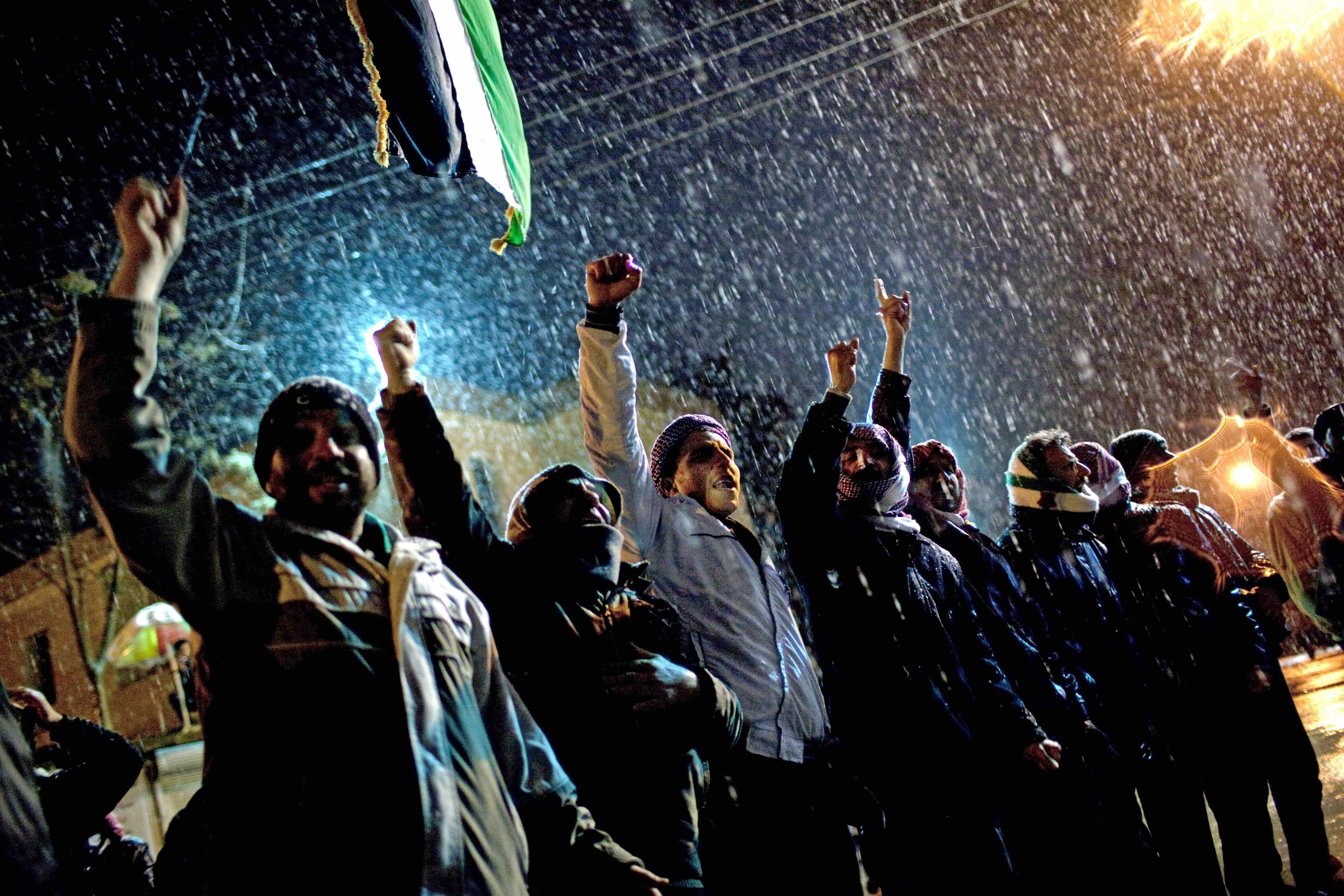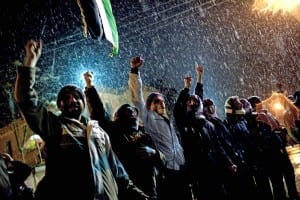Syria, A revolution forgotten

Despite attention being elsewhere the revolution in Syria rages
Article: Eman Bare – News Writer
[dropcaps round=”no”]A[/dropcaps]s the world watches protests unfold in Venezuela and Ukraine, the revolution in Syria is all but forgotten. That is how one Canadian woman feels, after following news reports on the actions of countries, in respect to Venezuela and Ukraine.
Sarah Ahmed is a Canadian of Syrian descent who says that Syria is being pushed to the side even though the situation is escalating.
“Ukraine is more on the radar for people, and North America is tied very closely to the Ukraine – if it’s not their homeland, then it’s somewhere they would consider visiting a lot more [than Syria], ” said Ahmed.
Also, Saskatchewan especially has high percent of Ukrainian descendants and historically has been closely related to the nation.
In early March, after Russian intervention in Ukraine, countries including Canada, the United States, Italy, Japan and Germany have all agreed to boycott the G8 Summit to be held in Sochi, Russia this June.
Russia is also believed to have played a role in the current situation in Syria, by arming Bashar Al Assad, the current President, and his regime with weapons. There has been no boycott of Russia in respect to Syria.
Recently, the Saskatchewan government announced that it would be donating $60,000 in humanitarian aid to Ukraine. Additionally, in a sign of support for the Ukrainian plight, a Ukrainian flag was raised outside the Legislature in Regina. Although organizations within Saskatchewan have donated to Syria over the past three years, there is no mention of the Saskatchewan government providing Syria with humanitarian aid.
In 2013, after two years of civil war, the Canadian government assisted in the immigration of only nine Syrian refugees. Additionally, the federal government has committed to donating $203.5 million to Syria, since 2012, but with no end in sight, action is needed more than aid.
Ahmed said that the war in Syria has been going on for so long, and that people are beginning to loose interest in the situation as newer revolutions, such as Ukraine and Venezuela begin to unfold. The last time she was in Syria was three months before the war started. At the time, everything was peaceful – or so she thought.
“Nobody says anything back home. When it comes to politics, I learned at a very young age that it’s not a joke in the Middle East. My parents really tore a strip off of me for defacing a postcard with the picture of the then current president when I was 13. They made me rip it up, put it in a bowl in the kitchen and if this was found even in the trash, they would take your family in the night and execute them all and you would be left alone. That is their tactic. I have never once discussed politics with my family.”
Ahmed explains that although there is a general dislike for Assad in Syria, particularly amongst the Sunni population, most businesses and homes place pictures of him or his father, the country’s former leader, on their windows.
“One of my family members had a business where there was a large billboard of the former president on the side. And I guess that, in the night, someone had pulled the corner of this billboard ripping it. The next day, all hell broke loose. (Government representatives) were interviewing everybody in a four-mile radius because it was seen as some bigger gesture against the government. For all you know, the wind could have ripped it.”
For a country that made political discussion a taboo, the peaceful protests that began three years ago explain the risks people were willing to take to bring change to their country. The government’s response to the peaceful protests that began with the Arab Spring was met with the use of chemical weapons, bombs, and armed conflict. A nightmare Ahmed said she could have never imagined for her home country.
Imagery coming out of Syria shows pictures of children with missing limbs, deformations and civilians that have been attacked by chemicals.
“The common-sense test says he is responsible for this. He should be held to account,” said U.S White House Chief of Staff Denis McDonough, in an interview with the CBC.
Ahmed said that at this point, those fighting for democracy are not any better than Assad and his army.
“I’ve been confronted with this question a lot: ‘Who do you side with?’ Of course, I don’t side with Assad’s army, but then they point out that the rebels have done some atrocious things as well. Then, you end up with the rebels who really just want things to change for their children, and the rebels that want to get back at the army by doing equally as barbaric things. It started as a revolution, but it’s undeniable that it’s a civil war now.”
In countries that have been torn apart by civil war, such as Somalia, the long-term social effects of the conflict can be devastating.
“All of the younger members of the family haven’t been in school consistently for almost three years now. You have to try and continue a life because you don’t know when it’s going to end, but then you still live in fear.”
In Syria, the children don’t want to go to school because Assad has not ruled out schools as non-threatening. He has dropped barrel bombs on kindergarten classes.
For Syria, the lasting effects of the war will inevitably be seen in the country’s younger population. As children spend their years growing up in violence and are being robbed of their education, they are paying the highest price.
[button style=”e.g. solid, border” size=”e.g. small, medium, big” link=”” target=””]Image: HonorTheKing, Patrick Wells[/button]









